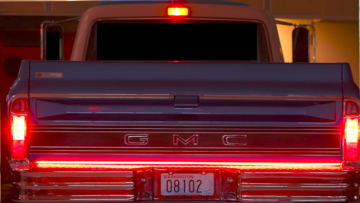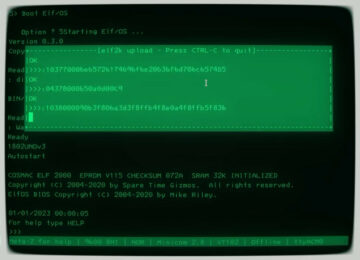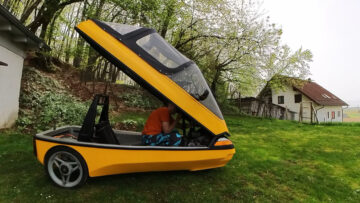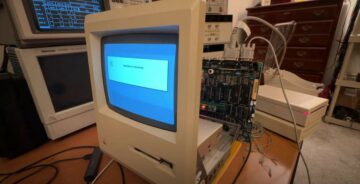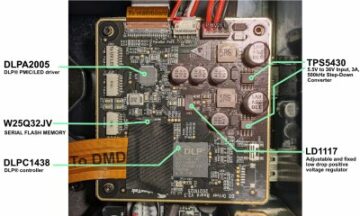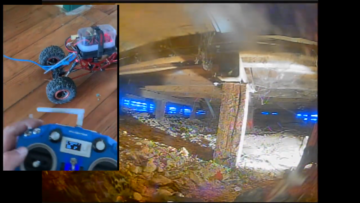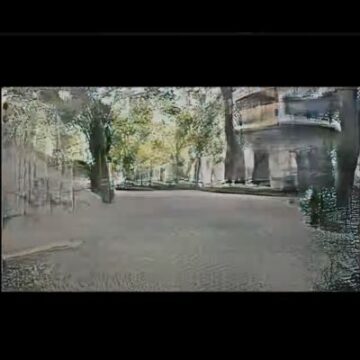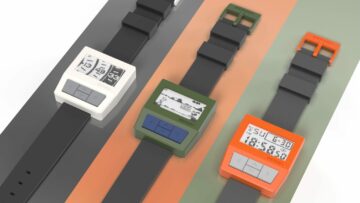Model railroaders typically observe their project from high above. It would be neat to see what the world looks like to the residents of your little town, but getting down to their point of view is difficult, especially if you’re working in one of the smaller scales. For those working in the N scale, there’s now an easy way of observing your project as the train driver would see it: [Vassily98] managed to squeeze a wireless camera into an N-scale railcar.
The main challenge here was the extremely limited space available: the track in N-scale layouts is 9 mm wide, meaning that the whole system had to fit in just 23 x 20 mm2, the frontal area of a typical train car. One of the few cameras that fit within that profile was the RunCam Nano 4, which [Vassily98] connected to an ultra-tiny Team BlackSheep 5.8 GHz video transmitter.
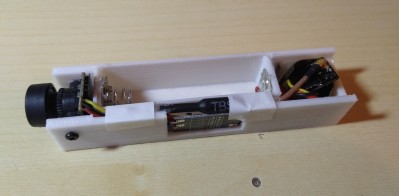
Everything is powered through a 3.6 V lithium battery, rather than through the rails – cameras and RF transmitters are quite sensitive to power interruptions and interference, and wouldn’t work reliably on direct rail power. This did require the addition of a boost converter however, because the video transmitter requires at least 4.5 V to work. [Vassily98] designed a neat 3D-printed wagon body that securely holds all components and fits on top of a standard cargo wagon chassis.
If you can’t wait to get a train driver’s view of your N-scale layout, then you’ll be happy to know that STL files and detailed build instructions are available on the project’s Hackaday.io page. We’ve seen FPV cameras in model railroad engines before, but that was in the huge O scale. You can also fit a miniature display in the slightly smaller HO scale – perhaps something similar would be a neat companion project to [Vassily98]’s camera train.
- SEO Powered Content & PR Distribution. Get Amplified Today.
- Platoblockchain. Web3 Metaverse Intelligence. Knowledge Amplified. Access Here.
- Source: https://hackaday.com/2022/12/28/2022-fpv-contest-get-the-train-drivers-view-in-your-n-scale-railway/
- 1
- 2022
- 9
- a
- above
- addition
- All
- and
- AREA
- available
- battery
- because
- before
- Bit
- body
- boost
- build
- camera
- cameras
- car
- carrying
- challenge
- components
- connected
- content
- designed
- detailed
- DID
- difficult
- direct
- Display
- down
- driver
- embedded
- Engines
- especially
- everything
- extremely
- few
- Files
- fit
- from
- get
- getting
- happy
- here
- High
- holds
- However
- HTTPS
- huge
- in
- instructions
- IT
- Know
- Layout
- Limited
- little
- LOOKS
- Main
- managed
- max-width
- meaning
- model
- nano
- observe
- ONE
- perhaps
- plato
- Plato Data Intelligence
- PlatoData
- Point
- Point of View
- power
- powered
- Profile
- project
- projects
- Rail
- rails
- Railway
- require
- requires
- residents
- Scale
- scales
- securely
- sensitive
- similar
- smaller
- something
- Space
- standard
- system
- team
- The
- the world
- their
- Through
- to
- top
- track
- Train
- transmitters
- true
- typical
- typically
- Video
- View
- wait
- What
- which
- wide
- wireless
- within
- Work
- working
- world
- would
- X
- Your
- youtube
- zephyrnet

